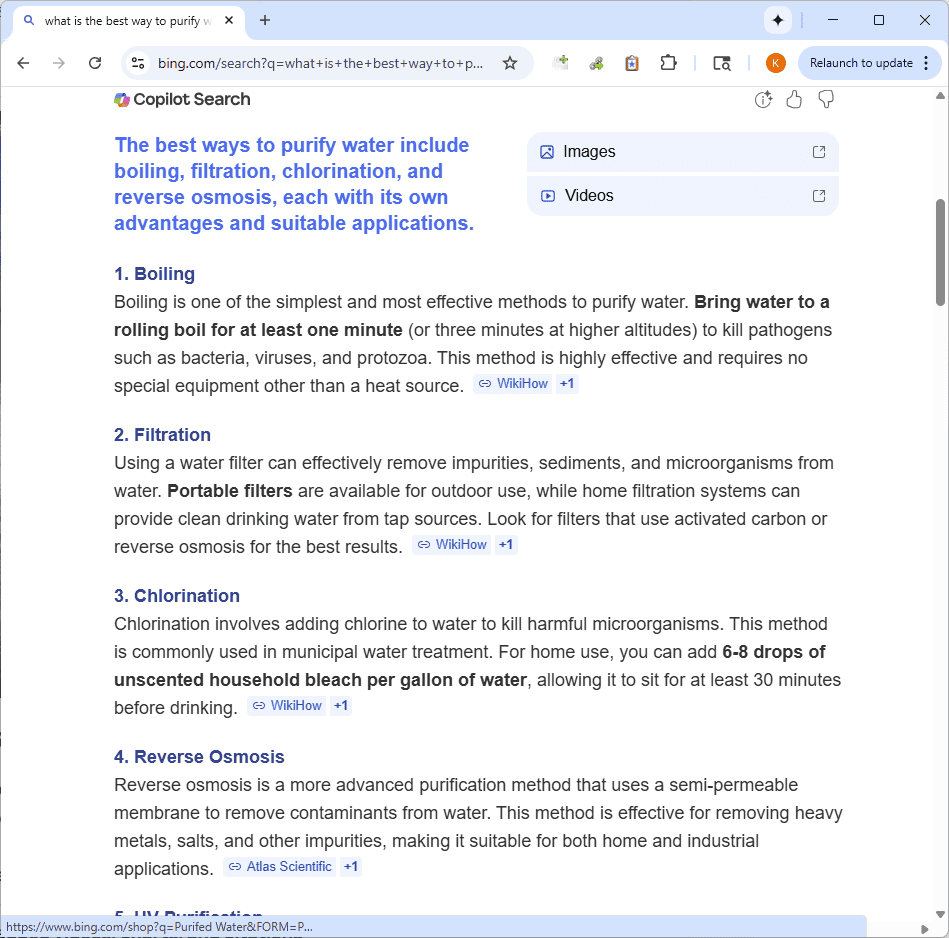The landscape of digital search is undergoing its most significant transformation in over a decade. For years, Google has maintained its dominance as the go-to search engine, holding an estimated 90% market share. But in 2025, Microsoft’s Bing is stepping up with a bold, AI-powered revamp that could reshape the way users, marketers, and publishers interact with search results. This is more than just a UI redesign—it's a strategic play to disrupt Google’s search monopoly and redefine SEO.
Microsoft’s AI-Powered Bing Redesign
Bing’s transformation is centered on AI, specifically its integration with OpenAI’s GPT-4 via Microsoft’s proprietary Prometheus model. Instead of a page full of blue links, Bing now offers a dynamic, conversational experience with rich summaries, bullet-point breakdowns, embedded multimedia, and real-time citations. This shift not only caters to modern user behavior but challenges the entire notion of how information should be presented online.
Google’s Response: The Search Generative Experience (SGE)
Not to be outdone, Google has introduced its Search Generative Experience which is now more refined and is also known as Google’s AI overview section in search. However, unlike Bing’s live rollout, Google’s SGE is still in experimental phases. Feedback from early users points to interface confusion and inconsistent results. With Bing already embedded in Windows 11 and Microsoft Edge, it’s clear that Microsoft is leveraging its ecosystem to accelerate adoption and innovation.
Why This Matters for SEO Professionals
Search engine optimization is evolving beyond keywords and backlinks. The AI-first approach means that traditional organic rankings may no longer guarantee visibility. Instead, marketers must consider how their content can be interpreted, summarized, and cited by AI. The structure of web content, its clarity, factual depth, and use of schema markup are becoming more important than ever.
The User Experience Revolution
Bing’s updated search model is a response to shifting user expectations. In an age of TikTok, Twitter threads, and YouTube Shorts, users want instant gratification. By offering digestible, visual-first summaries, Bing is aligning search with the modern attention span. This change compels marketers to rethink content length, formatting, and visual support.
SEO Strategies Must Adapt
The new rules of SEO demand a rethink of how digital content is structured. AI favors concise, authoritative, and well-organized data. Utilizing tools like structured data, FAQ schemas, and concise bullet points can help content be surfaced in AI-generated answers. Content that informs and educates quickly will be favored over long-form, keyword-stuffed copy.
Publisher Visibility and Traffic Sources
Many in the publishing world feared that AI summaries would cannibalize traffic by eliminating the need to click through to source material. Microsoft counters this by maintaining a side panel with traditional links and actively citing sources in its summaries. This approach preserves some visibility, but it also shifts the game toward earning a spot as a cited authority in AI responses.
Impact on Advertising Models
Google’s advertising empire is built on search queries. If users no longer click on ads or search through multiple links, the value of those ads could drop. Microsoft’s model potentially opens new doors—perhaps native ads embedded within summaries or sponsored citations. It’s a future that’s still unfolding, but marketers must prepare for a world where attention is earned differently.
Rise of Multi-Platform Search Behavior
With AI chatbots like ChatGPT, Gemini, and Bing Copilot offering search alternatives, user behavior is fragmenting. People no longer rely solely on Google to answer their questions. This multiplatform behavior underscores the need for marketers to diversify their SEO strategies and ensure visibility across various AI and search channels.
Implications for Local and Voice Search
Conversational AI naturally supports local and voice-based queries. Whether someone asks their smart assistant for the best Thai food nearby or requests directions to a hardware store, the format and phrasing of content become crucial. Optimizing for natural language and ensuring accurate business data in local directories is now even more essential.
Microsoft's Strategic Edge
By integrating Bing AI deeply within Windows 11 and its native Edge browser, Microsoft has baked its search engine directly into user workflows. This gives Bing an advantage in user acquisition and retention, allowing it to bypass the need for Chrome or a manual search engine preference.
Google One AI Premium and Subscription Push
As part of its counter-move, Google is bundling its most powerful AI tools—like Gemini Advanced—into a $19.99/month Google One AI Premium subscription. While this provides users with top-tier productivity tools, it also signals Google’s shift toward monetizing its AI layer, something that could complicate access and equity in the search ecosystem.
What Digital Marketers Should Do Now
Marketers should begin testing Bing AI and Google AI Mode immediately to understand how content performs across both platforms. They must expand analytics beyond Google and adopt tools that track performance in multi-AI environments. Additionally, optimizing content for clarity, accuracy, and structure will help ensure that AI favors it in citations and summaries.
Conclusion: Prepare for the AI Search Future
The AI-driven transformation of search is not coming—it’s here. As Bing rises and Google responds, digital marketers must embrace this change with agility and foresight. Understanding the new rules, experimenting with content formats, and diversifying visibility across platforms will be key to thriving in this new SEO era.
Bing vs. Google: The AI Search War in 60 Seconds Video:
FAQs
Is Bing’s AI better than Google’s SGE?
Bing currently has a head start with its full rollout and integration, while Google’s SGE is still evolving.
How does AI-generated content affect SEO rankings?
AI favors well-structured, accurate, and clearly written content. Rankings now depend more on how AI interprets and presents your data.
Should marketers focus on Bing now?
Yes, at least partially. Bing’s innovations make it a growing player in search, and early optimization can yield competitive advantages.
Will AI answers reduce website traffic?
Possibly, but appearing in AI citations or summaries can still drive high-quality traffic. Strategy will need to evolve accordingly.
How do I optimize content for Bing AI search?
Focus on clarity, use structured data, provide accurate citations, and ensure your content answers questions directly and authoritatively.





